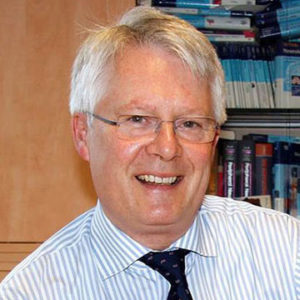touchEXPERT OPINIONS Looking back over 2018: What have we learnt about optimizing the treatment of advanced Parkinson’s disease?
Watch a series of internationally renowned clinical specialists from Europe discuss pivotal data for Parkinson’s disease from key neurology congresses throughout 2018 and consider how these findings may affect clinical practice.
The potential implications of these data for optimizing outcomes for patients with advanced Parkinson’s disease are explored from both global and regional perspectives.
Professor Antonini, director of the Parkinson Unit at the Neurology Clinic in Padua, Italy, provides his expert insight into data presented at key neurology congresses during 2018 and what they may mean for optimizing clinical outcomes for patients with advanced Parkinson’s disease.
1/4 Next Interview- What were the highlights from AAN, EAN, IAPRD or MDS 2018 on deep brain stimulation and what do they mean for patients with Parkinson’s disease?
- How do you think deep brain stimulation might change the treatment paradigm for Parkinson’s disease in the long-term?
- What were the highlights from AAN, EAN, IAPRD or MDS 2018 describing gait issues, balance and speech problems that emerge in the advanced phase of Parkinson’s disease?
- How do you alter your treatment strategy for patients experiencing cognitive decline?
- Data showing that patients who experienced mild traumatic brain injury may have a risk of Parkinson’s disease were presented at AAN 2018. What is your opinion of these findings?
Angelo Antonini is Director of the Parkinson Unit at the Neurology Clinic in Padua, Director of the Parkinson and Movement Disorders Unit at the research institute for neurorehabilitation San Camillo, Venice and Professor of Neurology at the University of Padua in Italy. He has conducted research into the definition of imaging biomarkers of the dopamine system and associated neurodegenerative processes, as well as the characterization of brain networks in Parkinson’s disease using FDG-PET. His recent research focuses on the pharmacology of dopaminergic medications, neuroimaging as well as cognitive and behavioral aspects of Parkinson’s disease. In addition, he is actively involved in the use of continuous infusion of levodopa and apomorphine infusion, as well as subthalamic nucleus deep brain stimulus for the treatment of motor fluctuations and dyskinesia of complicated Parkinson’s disease patients.
Professor Antonini has published 368 indexed peer-reviewed manuscripts and several book chapters, and he serves as a reviewer for the main medical and neurology journals.
Disclosures: Consultancy and speaker related activities from AbbVie, Bial, Boehringer Ingelheim, Lundbeck, UCB, Zambon. Research grant from Chiesi Pharmaceuticals, Lundbeck, Horizon 2020 – PD_Pal Grant 825785, Ministry of Education University and Research (MIUR) Grant ARS01_01081. He serves as a consultant for Boehringer–Ingelheim for legal cases on pathological gambling.
Professor Chaudhuri, Director Parkinson Foundation Centre of Excellence, King’s College, Denmark Hill Campus and King’s College Hospital and Research Director King’s College Hospital, provides his expert insight into data presented at key neurology congresses during 2018 and what they may mean for optimizing clinical outcomes for patients with advanced Parkinson’s disease.
2/4 Next Interview- What were the most promising new developments discussed during AAN, EAN, IAPRD and MDS 2018 for non-motor symptoms?
- How can an increased understanding of non-motor symptoms aid the early diagnosis of Parkinson’s disease?
- At what stage of Parkinson’s disease do non-motor symptoms develop and how can they be assessed?
- Data showing that patients presenting with sleep disorders can be used to detect and predict early Parkinson’s disease were presented during 2018. What are the relevance of these data?
- What are the major challenges in treating patients with Parkinson’s disease and are there any promising treatments on the horizon?
Ray Chaudhuri is Professor of Neurology/Movement Disorders, Consultant Neurologist at King’s College Hospital and King’s College London, Principal Investigator at the Maurice Wohl Clinical Neuroscience Institute at King’s College, London and NIHR biomedical research centre at the Institute of Psychiatry, and Medical Director of the National Parkinson Foundation International Centre of Excellence at King’s College, London, UK. He is also a member of several important committees, groups and societies related to improving the management and outcomes for patients with Parkinson’s disease.
Professor Chaudhuri has authored over 500 papers, book chapters and abstracts. His major research interests include non-motor symptoms of Parkinson’s disease, continuous drug delivery treatment of Parkinson’s disease and restless leg syndrome, parkinsonism in minority ethnic groups and sleep problems in Parkinson’s disease. He was the recipient of the 2018 Van Andel award for outstanding research contribution in the field of non-motor Parkinson’s disease as well as the National Institute of Health Research/Royal College of Physicians award for outstanding research leadership in 2017.
Disclosures: Advisory role for AbbVie, Bial, Cynapsus, GKC, Jazz Pharma, Lobsor, Medtronic, Pfizer, Profile, Novartis, Stada, Sunovion, UCB, Zambon. Honoraria for AbbVie, Boehringer Ingelheim, Britannia, , Mundipharma, Neuroderm, Novartis, Sunovion, UCB, Zambon. Investigator initiated grants from AbbVie,Bial, Britannia Pharmaceuticals, GKC, UCB. Academic grants from EU, EU (Horizon 2020), IMI EU, Horizon 2020, Kirby Laing Foundation, MRC, NIHR, NPF, Parkinson’s UK, PDNMG.
Dr. Helmich, Neurologist and Junior Principal Investigator at the Radboud University Medical Center, Nijmegan, the Netherlands, provides his expert insight into data presented at key neurology congresses during 2018 and what they may mean for optimizing clinical outcomes for patients with advanced Parkinson’s disease.
3/4 Next Interview- Parkinson’s disease progresses through different phases. Has there been a clinical focus on any particular phase of the disease during congresses in 2018 and what were the most exciting highlights in your opinion?
- Why is it so important to develop new treatments aimed at neuroprotection and the treatment of Parkinson’s disease before motor symptoms appear?
- How can early detection of Parkinson’s disease be improved?
- How have the diagnostic criteria evolved during the past year in Parkinson’s disease?
- What progress has been made in research to identify biomarkers in Parkinson’s disease for early detection and tracking disease progression?
- Why are biomarkers that help track how new treatments are affecting Parkinson’s disease so important?
Rick Helmich is a consultant neurologist specializing in movement disorders at the Department of Neurology, Radboud University Medical Centre in Nijmegen, the Netherlands. He trained as a neurologist between 2011 and 2017. In 2011, he obtained his PhD with honours at the Radboud University in Nijmegen studying the brain’s compensatory mechanisms in Parkinson’s disease. In 2015, he worked as a research fellow at the National Institute of Neurological Disorders and Stroke with Mark Hallett, MD.
Since 2018, Dr. Helmich has served as principal investigator at the Donders Centre for Cognitive Neuroimaging in Nijmegen. He leads the Systems Neurology group, which studies brain mechanisms underlying movement disorders such as tremor, Parkinson’s disease and dystonia. In his research, he uses brain imaging techniques, such as functional and structural magnetic resonance imaging, non-invasive brain stimulation and neurophysiology.
Disclosures: Received consultation fees and research funding from AbbVie, Michael J. Fox Foundation, the Netherlands Brain Foundation and the Netherlands Organization for Scientific Research.
Professor Reichmann provides his expert insight into data presented at key neurology congresses during 2018 and what they may mean for optimizing clinical outcomes for patients with advanced Parkinson’s disease.
4/4 Leave Feedback- In your opinion, what were the most exciting advances in Parkinson’s disease therapy that happened during 2018?
- What are the advantages and disadvantages of levodopa-carbidopa intestinal gel in advanced Parkinson’s disease?
- What new developments in apomorphine delivery are of most interest and have most relevance to your clinical practice?
- What are the key factors influencing your treatment decisions for patients with advanced Parkinson’s disease?
- Which data were the most impactful during 2018 for the treatment of dyskinesia and how can they be translated into clinical practice?
Heinz Reichmann is a Professor of Neurology and the Dean of the Medical Faculty at the University of Dresden, Germany. As well as being a member of numerous scientific societies, including The Movement Disorder Society, the European Neurological Society and the American Academy of Neurology, Professor Reichmann is past-President of the European Neurological Society and was the former President of the German Parkinson Society and President of the German Neurological Society. He currently serves on the editorial boards of the Journal of Neurology, European Journal of Neurology, the Journal of Neural Transmission, the Journal of Parkinsonism and Related Disorders, Acta Myologica, and Aktuelle Neurologie.
Professor Reichmann’s research involves biochemical and genetic analyses of energy metabolism, especially in neurodegenerative disorders and mitochondrial cytopathies. He is interested in animal models mimicking Parkinson’s disease and works on premotor signs in Parkinson’s disease. He has published more than 300 papers in peer-reviewed journals.
Overview & Learning Objectives
Overview
Watch a series of internationally renowned clinical specialists from Europe discuss pivotal data for Parkinson’s disease from key neurology congresses throughout 2018 and consider how these findings may affect clinical practice.
The potential implications of these data for optimizing outcomes for patients with advanced Parkinson’s disease are explored from both global and regional perspectives.
Learning Objectives
After watching these touchCONGRESS Expert Opinions from key neurology congresses during 2018, you should be able to:
- Summarize the latest clinical data for emerging treatment options and treatment delivery systems for the management of motor and non-motor symptoms of Parkinson’s disease.
- Discuss the use of biomarkers for the early identification of Parkinson’s disease, and to facilitate the use of neuroprotective agents.
- Describe the use of emerging targeted agents and therapeutic strategies to manage treatment side effects and maintain patient quality of life.

Register to touchNEUROLOGY for FREE
- Peer-reviewed journals and expert opinions
- Interactive CME and e-learning modules
- Video conference highlights





